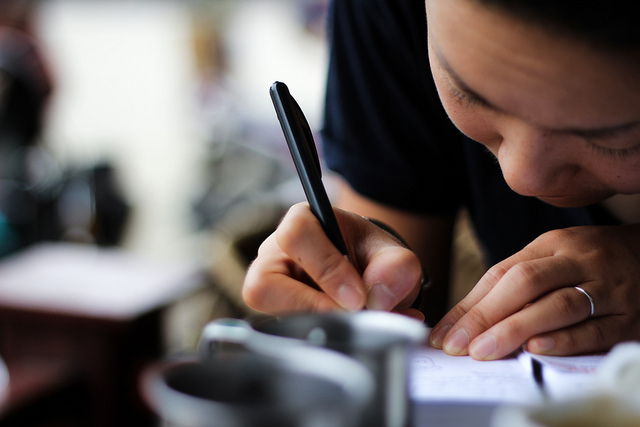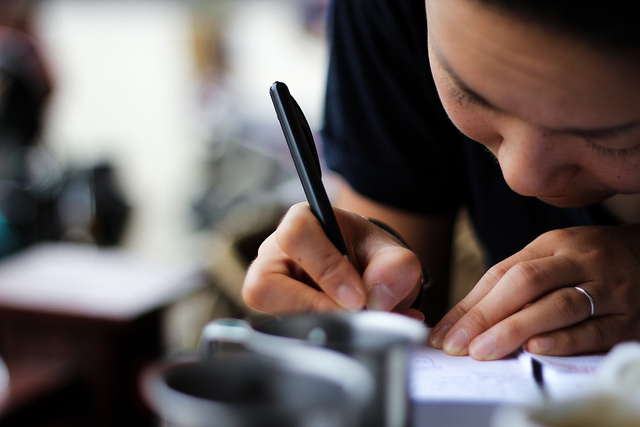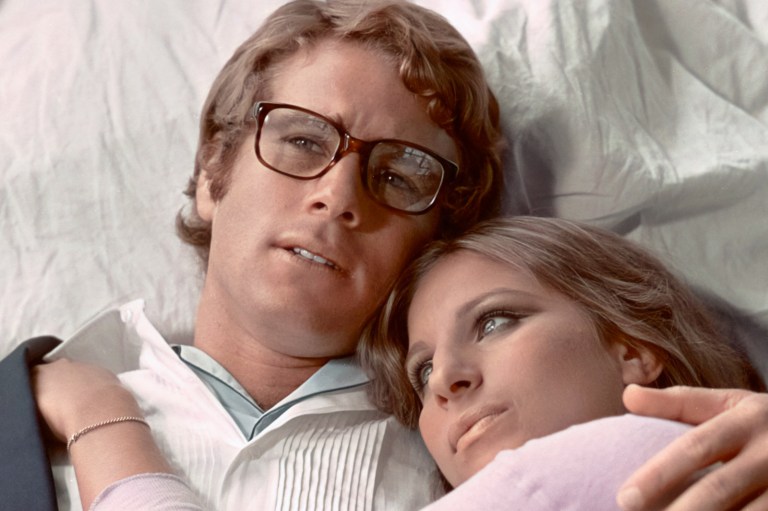
6 Refreshing Reasons To Keep A Journal
Journaling is the only activity for me to concentrate on my own private thoughts. It has helped me be a conversationalist and voracious reader. It is an outlet that is powerful and liberating.

I’ve never forgotten the moment my father placed his finger on the top line of my composition notebook and told me to write freely. Journaling is the only activity for me to concentrate on my own private thoughts. It has helped me be a conversationalist and voracious reader. It is an outlet that is powerful and liberating. Here are six ways I organize my daily journal entries each day. Make journaling a key part of your lifestyle.
1. Process Memories
Memories create our stories, but our stories also create our memories. Once we have a narrative, we shape our memories to fit into it. -Carol Tavris
Because memory is reconstructive, it is easy to confuse an event that happened to someone else with one that happened to you, or coming to believe that you remember something that never happened at all. What happens to me is not as important as the meaning I assign to it. Interpreting memories through journaling makes it easy to keep track of where the narrative of your life is heading, to come to terms with the past, and make sure you focus on certain aspects of an experience. Journaling gives you the power to be the architect of a memory.
2. Clarify My Thought Process
Drag your thoughts away from your troubles…by the ears, by the heels, or any other way you can manage it. – Mark Twain
I suffer from negative voices from family members, past teachers, and bad girlfriends. To cut the head of these snakes, writing 1,000 words in the morning allows me to focus on my own voice and thoughts. I’m neurotic and have so many ideas in my head. The journaling process allows me to articulate what I’m feeling or what I’m thinking. Because journaling is writing for yourself, instead of writing for an audience, it is great way to zero in on thoughts you want to focus and expand upon.
3. Notice My Feelings
I have feelings too. I am still human. All I want is to be loved, for myself and for my talent. – Marilyn Monroe
As much as I rely on my willpower and my spirit to get through difficult tasks, my feelings are the most important part of my being. Emotions are clues to other things we need to be paying attention to. Journaling puts me in the ring with feelings. I tried to deny my emotions for years because I didn’t want my emotions to run my life. But with a journal I can have the opportunity to explore emotions further when I become one with my feelings.
4. Remind Myself Of Gratitude
As we express our gratitude, we must never forget that the highest appreciation is not to utter words, but to live by them. – John F. Kennedy
Because we live in an image-based culture, it is easy to be concerned with how we present ourselves to others and our reputation. But what matters most are our acts of gratitude towards others. I write down three things I’m grateful for at the top of each journal entry and before going to bed, I write down three acts of gratitude I did for the day. Keeping a journal keeps you accountable for these virtuous acts.
5. Record Significant Lessons
Lessons are not given, they are taken. – Cesare Pavese
So many things happen every day and I grasp daily lessons by writing them down. My conscious effort to record significant lessons allows me to distill from them the wisdom that will be useful for when I get into similar situations in the future. I’ve also noticed that I connect most with people when sharing lessons I have written down based on my own life.
6. Ask Important Questions
Judge a man by his questions rather than his answers. – Voltaire
After journaling for about 3 years now, I’ve realized I get better answers to life’s questions when I articulate better questions. My journal is a storage system for me to jot down questions where I can think about them throughout the day or week and eventually answer. I also enjoy asking friends and family about the questions I have and recording their answers along with the answer I come up with in my journal.
The main thing about journaling is you want something that becomes invisible to you, so you can focus on writing and reflecting on how to get those ideas out your head and onto the page. Remember the most important thing is to start. It’s not that complicated, you’ll figure it out whether you go the digital or paper route. Feel free to email me if you want to learn how I journal digitally with Evernote. I can share a template I use to keep my journal entries organized so it is easy to look up and tag topics you wrote about for future reference. ![]()











